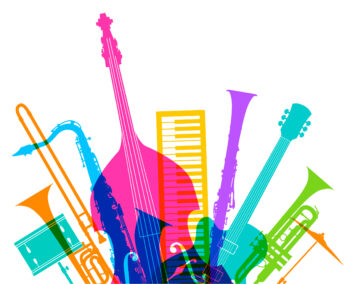The Influence of Music on Feelings and Psychological Well-being
In the realm of psychology and health, the extensive impact of music on emotions and psychological health has long been a subject of rate of interest and research. The intricate connection in between the tunes we listen to and the feelings we feel is a complicated interplay that scientists and experts have been checking out for years. From affecting state of mind to working as a powerful tool for tension administration, music's function fit psychological wellness is deserving and multifaceted of further exploration. As we navigate the nuances of how music intertwines with our emotional landscape and mental wellness, a deeper understanding of its potential to boost, calm, or prompt assumed arises, welcoming us to ponder the relevance of this global language in our day-to-days live.
Impact of Songs on State Of Mind

Research study has actually revealed that songs can modulate mood by triggering neural paths related to feelings in the brain. Listening to music can promote the release of natural chemicals like dopamine and serotonin, which are recognized to manage state of mind and emotions. This physiological reaction to music describes why particular tracks can quickly boost our spirits or bring splits to our eyes. Recognizing how music influences mood can have considerable ramifications for utilizing music as a restorative device for psychological regulation and mental well-being.
Link In Between Music and Tension
The interplay between music stimulations and the human reaction to tension has been a topic of expanding rate of interest in the fields of psychology and neuroscience (MUSIC). Songs has actually shown remarkable potential in mitigating stress and anxiety degrees and promoting relaxation. Researches have actually suggested that listening to songs can cause physiological changes in the body, such as lowered heart price, lower high blood pressure, and reduced levels of cortisol - a hormonal agent connected with tension
The connection between songs and tension alleviation is assumed to be closely connected to the effect of music on the limbic system, which plays a key function in emotions and blog here stress and anxiety actions. Furthermore, individual music preferences can also influence the stress-reducing results of music, highlighting the significance of individualized strategies when using music as an anxiety monitoring device.
Songs as a Therapeutic Tool

Research study has actually shown that songs therapy can dramatically minimize anxiety, anxiety, and persistent pain. Songs has the ability to stimulate memories, stimulate favorable feelings, and offer a feeling of comfort and leisure.
Influence of Music on Mental Wellness

Music has actually been located to have profound effects on psychological wellness by influencing mood, lowering anxiety, and enhancing overall health. Furthermore, music treatment, a structured use of songs to enhance psychological health and wellness outcomes, has actually been shown to be useful for individuals with numerous mental wellness conditions, including post-traumatic anxiety condition (PTSD), schizophrenia, and mental deterioration. Generally, the influence of songs on mental wellness is an appealing location of research study that provides possible restorative advantages for individuals encountering various psychological health and wellness obstacles.
Ways to Integrate Songs for Well-being
Music has the power to stimulate emotions and affect our psychological state, making it a useful tool for advertising well-being. One means to incorporate songs for well-being is by developing playlists that resonate with certain emotions or objectives.
Another method to use music for health is through energetic listening. Taking the time to absolutely engage with the songs, concentrating on the lyrics, tools, and overall structure, can grow the emotional link and link intensify the restorative results. This mindful technique to paying attention can help individuals procedure feelings, decrease anxiousness, and improve general psychological wellness.
Additionally, going to real-time music events or shows can additionally contribute to well-being by supplying a feeling pop over to these guys of area, joy, and connection. Being component of a common music experience can uplift spirits, foster a sense of belonging, and produce enduring memories that favorably influence mental well-being.
Conclusion
In final thought, music has a substantial influence on feelings and psychological health. It can affect state of mind, reduce stress, and work as a therapeutic tool for enhancing mental health. Incorporating music into daily routines can enhance overall well-being and add to a positive state of mind. It is crucial to identify the power of songs in advertising emotional equilibrium and mental clarity.
The relationship in between songs and mood is intricate, with various components of music such as setting, pitch, and pace playing vital duties in generating emotional feedbacks. Comprehending exactly how songs affects mood can have substantial ramifications for using songs as a restorative device for emotional policy and psychological wellness.
The link in between music and stress and anxiety relief is assumed to be carefully linked to the influence of music on the limbic system, which plays a vital function in emotions and anxiety reactions. In addition, personal songs choices can also affect the stress-reducing impacts of songs, highlighting the value of individualized techniques when using music as a stress administration tool. Furthermore, songs therapy, an organized use of songs to improve mental wellness outcomes, has actually been revealed to be helpful for people with various psychological health conditions, consisting of post-traumatic stress condition (PTSD), schizophrenia, and mental deterioration.